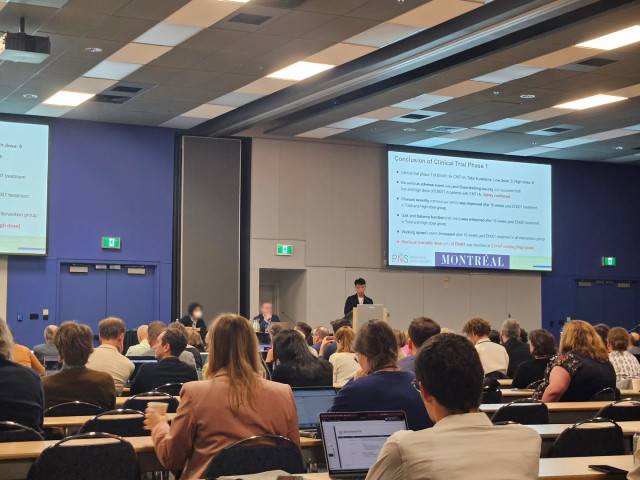ENCell Presents the Phase 1 Clinical Trial Results of EN001 for Charcot-Marie-Tooth Disease at the PNS conference
ENCell presented promising results from their First-in-Human Phase 1 clinical trial of the novel mesenchymal stem cell therapy (EN001) for Charcot-Marie-Tooth disease type 1A (CMT1A) at the Peripheral Nerve Society (PNS) annual meeting in Montreal on June 23, 2024.
SEOUL--(뉴스와이어)--ENCell Co., Ltd., a biotech in South Korea specializing in Cell and Gene therapy (CGT), presented promising results from their First-in-Human Phase 1 clinical trial of the novel mesenchymal stem cell therapy (EN001) for Charcot-Marie-Tooth disease type 1A (CMT1A) at the Peripheral Nerve Society (PNS) annual meeting in Montreal on June 23, 2024. This annual conference is a key gathering for experts in the field, including neurologists, neurosurgeons, neuroscientists, and other healthcare professionals focused on peripheral nerve disorders.
EN001 is a next-generation allogeneic mesenchymal stem cell therapy developed using ENCell's proprietary ENCell Technology. ENCell reported EN001 can migrate to and regenerate damaged nerves and muscles through non-clinical studies. In June 2023, ENCell completed a Phase 1 clinical trial with nine CMT1A patients at Samsung Medical Center (SMC) with Professor Byung-Ok Choi from the Department of Neurology as the Principal Investigator. The trial utilized a dose-escalation design to ensure the safety and exploratory efficacy of EN001 over a 16-week period.
The trial results, which were selected for oral presentation at the PNS meeting, showed no dose-limiting toxicity, serious adverse events, or infusion-related responses among participants, thereby confirming the safety of EN001. Additionally, exploratory efficacy evaluations revealed significant improvements. The Charcot-Marie-Tooth Neuropathy Score version 2 decreased by an average of 2.89 points (p=0.0039) after 16 weeks, with the high-dose group showing a more pronounced reduction of 3.50 points (p=0.0313).
Further analysis indicated that patients receiving the high dose experienced clinical improvements in disease severity, with some moving from severe to moderate or from moderate to mild categories. Specific sensory and motor function tests also showed marked improvements, with the high-dose group. Enhancements in the 10 Meter Walking Test, Functional Disability Scale, Overall Neuropathy Limitation Score leg scale, and nerve conduction studies were also observed.
An ENCell spokesperson highlighted the significance of presenting these promising clinical results at a prestigious conference, emphasizing the company's dedication to developing new treatment options for CMT patients, who currently lack approved therapies.
Professor Byung-Ok Choi, leading the clinical trial, expressed optimism, stating, “These results provide hope to CMT1A patients, a group affected by a rare disease without existing treatments.”
ENCell is planning to conduct repeat-administration clinical trial at SMC.



